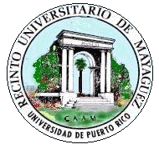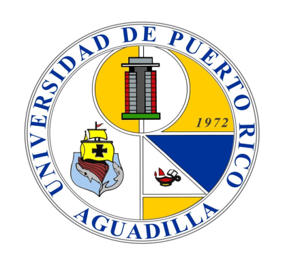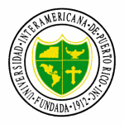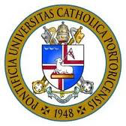Participating HSI’s
University of Puerto Rico - Mayaguez Campus
The Universit
 y of Puerto Rico (UPR), a co-educational, bilingual, and non-sectarian institution, was established in March 12, 1903 through a piece of legislation of the Insular Legislative Assembly. At present, the system comprises three major campuses (Río Piedras, Medical Sciences, and Mayagüez) with active graduate and research programs, and eight mainly baccalaureate and associate degree colleges in the municipalities of Cayey, Humacao, Bayamón, Carolina, Arecibo, Ponce, Aguadilla, and Utuado. The Mayagüez Campus (UPRM), where the “Encouraging careers in food security and safety: A multi-institutional collaborative approach for success in Puerto Rico” (ECaFSS) resides, was established in 1911 as the College of Agriculture, and later known as the College of Agriculture and Mechanical Arts (CAAM, for its Spanish acronym), a name that endured for fifty years. The UPR-Mayaguez campus (UPRM) developed from a four-year institution in its early years into a PhD-degree granting institution supported by an administrative organization and physical infrastructure vital for its teaching and research programs. It is organized in four colleges: Agricultural Sciences, Engineering, Arts and Sciences, and Business Administration. The Campus has 91 academic programs: 55 baccalaureates, 43 masters, and 8 PhD programs It has 1,064 teaching personnel, of which at least 89% are of minority ethnic groups and 84% are tenured. It is currently classified as a Master’s Colleges & Universities: Medium Programs, according to the Carnegie Classification of Higher Education Institutions.
y of Puerto Rico (UPR), a co-educational, bilingual, and non-sectarian institution, was established in March 12, 1903 through a piece of legislation of the Insular Legislative Assembly. At present, the system comprises three major campuses (Río Piedras, Medical Sciences, and Mayagüez) with active graduate and research programs, and eight mainly baccalaureate and associate degree colleges in the municipalities of Cayey, Humacao, Bayamón, Carolina, Arecibo, Ponce, Aguadilla, and Utuado. The Mayagüez Campus (UPRM), where the “Encouraging careers in food security and safety: A multi-institutional collaborative approach for success in Puerto Rico” (ECaFSS) resides, was established in 1911 as the College of Agriculture, and later known as the College of Agriculture and Mechanical Arts (CAAM, for its Spanish acronym), a name that endured for fifty years. The UPR-Mayaguez campus (UPRM) developed from a four-year institution in its early years into a PhD-degree granting institution supported by an administrative organization and physical infrastructure vital for its teaching and research programs. It is organized in four colleges: Agricultural Sciences, Engineering, Arts and Sciences, and Business Administration. The Campus has 91 academic programs: 55 baccalaureates, 43 masters, and 8 PhD programs It has 1,064 teaching personnel, of which at least 89% are of minority ethnic groups and 84% are tenured. It is currently classified as a Master’s Colleges & Universities: Medium Programs, according to the Carnegie Classification of Higher Education Institutions.The College of Agricultural Sciences comprises the Faculty of Agriculture, the Agricultural Experiment Station, and the Agricultural Extension Service. The Faculty has the teaching responsibility for future agronomists at the undergraduate and master levels. Eleven academic programs conducing to Bachelor’s degree and include Agricultural Sciences (Agronomy, Soil Sciences, Horticulture, Crop Protection, Animal Science, Mechanical Agricultural Technology, Agribusiness, Agricultural Economics, Agricultural Education, General Agriculture, and Agricultural Extension). Nine programs at a Master’s level include Agronomy, Soil Sciences, Horticulture, Crop Protection, Agricultural Economics, Animal Science, Food Science and Technology, Agricultural Extension, and Agricultural Education. The college also has a Pre-Vet program for those students who want to pursue Veterinary Medicine. The UPRM is fully accredited by the Puerto Rico Council of Education. It holds membership in the Middle States Commission on Higher Education since 1946. The academic programs are also accredited by professional entities such as the Accreditation Board for Engineering and Technology (ABET), the American Chemical Society, and the National League of Nursing. Also, UPRM is accredited by the National Council for Accreditation of Teacher Education (NCATE).
University of Puerto Rico - Aguadilla Campus
The Aguadilla Campus of the University of Puerto Rico (UPRAg) was established in 1972 by the certification No. 63-1971-72 of the Higher Education Council. It is a four-year institution that offers 7 baccalaureates in the following areas: Business Administration, Biology (5 areas of emphasis), Environmental Technology (3 areas of emphasis), Education, Office Systems, and Technology in Electrical Engineering. UPRAg has 194 teaching personnel, of which at least 99% are of minority ethnic groups and 51% are tenured. As for the student population, 86% of the student body are minorities and 100% are U.S. citizens, essentially all of Puerto Rican descent, and more than 50% are first generation college students.
The UPRAg is fully accredited by the Puerto Rico Council of Education. It holds membership in the Middle States Commission on Higher Education since 1976 and was re-accredited in 2016. The academic programs are also accredited by professional entities such as the Superior Education Council of Puerto Rico; the Business Administration Program was accredited by the Accreditation of Collegiate Business Schools and Programs (ACBSP) in 2009. The English and Education Programs were accredited by the Accreditation of Collegiate Business Schools and Programs (ACBSP) also in 2009, formerly known as the National Council for Accreditation of Teacher Education (NCATE). The Technology in Electrical Engineering was accredited by the Accreditation Board for Engineering and Technology (ABET) in 2012. The Office Systems program was accredited by the Accreditation of Collegiate Business Schools and Programs (ACBSP) in 2011. The Department of Counseling and Psychological Studies received an accreditation by the International Association of Counseling Services, Inc. (IACS) in 2015. In addition, the University’s library, Enrique E. Laguerre was accredited by the Association of College & Research Libraries (ACRL) and by the American Libraries Association (ALA) in 2007.
Inter-American University of Puerto Rico - San Germán Campus
The Inter American University of Puerto Rico (IAUPR) was founded in 1912, and it is the largest private institution of higher learning in Puerto Rico. IAUPR has a total enrollment of approximately 34,000 students distributed in nine academic units located throughout the Island. It is accredited by the Middle States Council on Higher Education (MSCHE) and licensed by Council Education of Puerto Rico (CEPR). The University was the first private institution of higher learning to be accredited by MSA outside of Continental United States, in 1944; a distinction held ever since.
The San Germán Campus, IAUPR-SG is located in the rural area of southwestern Puerto Rico, and is the foundation site of the IAUPR. Its student body is 99% Hispanic/ Puerto Rican students, mostly from nearby towns such as San Germán, Sabana Grande, Lajas, Cabo Rojo, Hormigueros, Las Marías, Yauco, Guayanilla, Mayaguez, Añasco y las Marías. For fall 2018, the San Germán Campus registered 4,152 undergraduate students with approximately, 750 of them enrolled in STEM programs. Approximately, 60% of undergraduates are first- generation in college and women represent approximately 50% of all STEM students. IAUPR-SG offers B.S. programs in Biology, Microbiology, Chemistry, and Environmental Technology and a M.S. in Environmental Sciences. The Department of Biology, Chemistry and Environmental Sciences has 11 full time faculty, along with 24 adjunct faculty members. The Department of Mathematics and Applied Sciences offers B.S. Computer Sciences, Electronics Technology, Mathematics has 10 full time faculty and 12 adjunct faculty members.
Pontifical Catholic University of Puerto Rico -Ponce Campus
The Pontifical Catholic University of Puerto Rico (PCUPR) is a higher education, coeducational, non-profit organization having close ties with the Catholic Church of Puerto Rico. The University was founded in 1948, under the guidance of the Bishops of Puerto Rico. The mission of the Pontifical Catholic University is to honor and promote the life and dignity of the human being as well as to educate him/her in accordance with the values of the Gospel and the disciplines of current scientific knowledge in order to build a better local and global community. The Institution total enrollment was 7,381 (Fall 2017) with 98% Hispanic students. The Main Campus of Pontifical Catholic University of Puerto Rico is located in Ponce, in the southern region of the island. PCUPR has two branch campuses: Arecibo Campus, in the northern side of the island; and Mayaguez Campus, in the western side of the island. PCUPR is organized in four colleges: Arts & Humanities, Science, Business Administration and Education. The Institution also has a School of Architecture and a Law School. Educational offering includes more than 150 programs at the associate, bachelor, master and doctorate degree levels. The programs of study at the University are accredited by the Council of Higher Education of Puerto Rico and by the Middle States Commission on Higher Education.
The College of Sciences was established in 1966 and has seven (7) departments: Biology, Chemistry, Biomedical Science, Mathematics-Physics, Medical Technology, Nursing, and Psychology. It also has a Biotechnology program, which is under the Biology Department. In 2011, the Biotechnology and Agrobiotechnology Research and Learning Center (CEIBA), a state-of-the art and equipped facility, was created for teaching undergraduate and graduate courses in biotechnology and agro-biotechnology, conducting research projects, and offering continuing education for the community. CEIBA promotes scientific research in microbiology, biological control, plant pathology, and plant propagation by tissue culture, among others. It seeks to strengthen productivity and commercial capabilities of the island’s southern region. The College of Sciences has been one of the fastest growing colleges in the University. As of fall 2017, the college total enrollment was 2,734 students and about 90 faculty members. In addition, the College of Sciences has an Advisory Committee, which is composed of highly placed alumni (managers, directors, and scientists) from local industry and pharmaceutical companies. The College has an unwavering commitment to enhancing and investing in science education and research.



